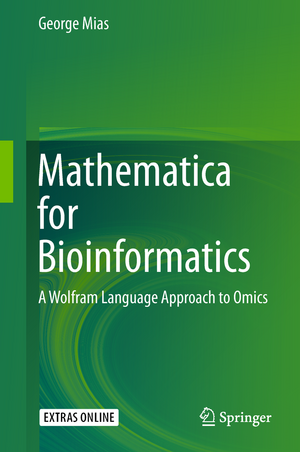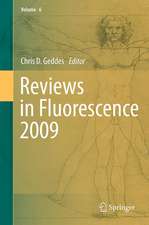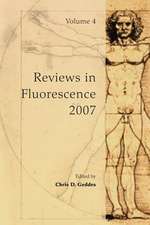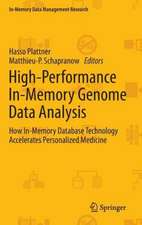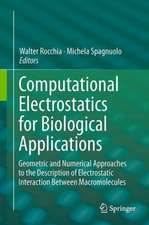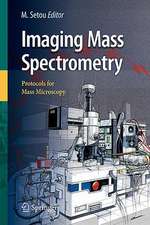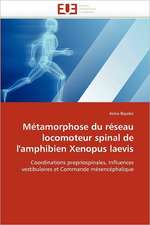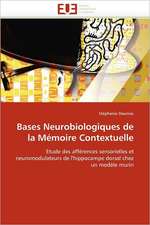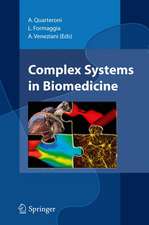Mathematica for Bioinformatics: A Wolfram Language Approach to Omics
Autor George Miasen Limba Engleză Hardback – 3 apr 2018
| Toate formatele și edițiile | Preț | Express |
|---|---|---|
| Paperback (1) | 1112.30 lei 3-5 săpt. | |
| Springer International Publishing – 19 dec 2018 | 1112.30 lei 3-5 săpt. | |
| Hardback (1) | 1118.93 lei 6-8 săpt. | |
| Springer International Publishing – 3 apr 2018 | 1118.93 lei 6-8 săpt. |
Preț: 1118.93 lei
Preț vechi: 1364.55 lei
-18% Nou
Puncte Express: 1678
Preț estimativ în valută:
214.11€ • 224.11$ • 178.20£
214.11€ • 224.11$ • 178.20£
Carte tipărită la comandă
Livrare economică 31 martie-14 aprilie
Preluare comenzi: 021 569.72.76
Specificații
ISBN-13: 9783319723761
ISBN-10: 3319723766
Pagini: 400
Ilustrații: XVI, 384 p. 175 illus., 156 illus. in color.
Dimensiuni: 155 x 235 x 24 mm
Greutate: 0.74 kg
Ediția:1st ed. 2018
Editura: Springer International Publishing
Colecția Springer
Locul publicării:Cham, Switzerland
ISBN-10: 3319723766
Pagini: 400
Ilustrații: XVI, 384 p. 175 illus., 156 illus. in color.
Dimensiuni: 155 x 235 x 24 mm
Greutate: 0.74 kg
Ediția:1st ed. 2018
Editura: Springer International Publishing
Colecția Springer
Locul publicării:Cham, Switzerland
Cuprins
1 Introduction to Bioinformatics.- 2. A Mathematica Primer for Bioinformaticians.- 3. Statistics for Genomic Analysis.- 4. Genomic Sequences.- 5. Databases.- 6. Transcriptomics.- 7. Proteomics.- 8. Metabolomics.- 9. Systems Biology.- 10. Networks.- 11. Time Series Analysis.- 12. Omics Integration and Systems Medicine.- 13. Bioinformatics Development with Mathematica.
Textul de pe ultima copertă
This book offers a comprehensive introduction to using Mathematica and the Wolfram Language for Bioinformatics. The chapters build gradually from basic concepts and the introduction of the Wolfram Language and coding paradigms in Mathematica, to detailed worked examples derived from typical research applications using Wolfram Language code. The coding examples range from basic sequence analysis, accessing genomic databases, and differential gene expression, to time series analysis of longitudinal omics experiments, multi-omics integration and building dynamic interactive bioinformatics tools using the Wolfram Language. The topics address the daily bioinformatics needs of a broad audience: experimental users looking to understand and visualize their data, beginner bioinformaticians acquiring coding expertise in providing biological research solutions, and practicing expert bioinformaticians working on omics who wish to expand their toolset to include the Wolfram Language.
Caracteristici
Illustrates research applications with detailed, worked out examples Provides complete code companion executable in Mathematica notebooks Contains complete instructions for users write their own application in the wolfram language
